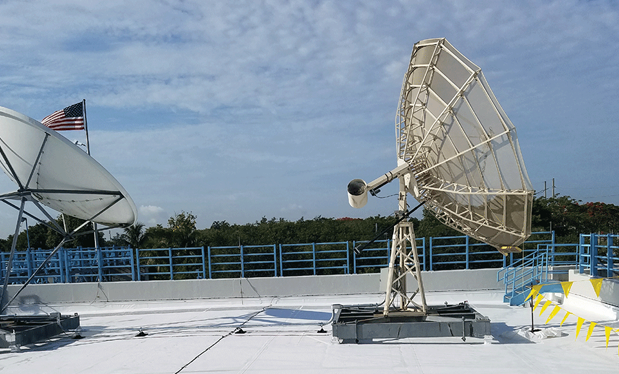In December 2017, Congress approved the Tax Cuts and Jobs Act (H.R. 1) of 2017, the most sweeping tax reform legislation in more than 30 years. NRCA was actively involved at each stage of the legislative process and is pleased the final bill recognizes the roofing industry's highest priorities. The positive results demonstrate the value of NRCA's active engagement in the policymaking process in Washington, D.C., and at the grassroots level on behalf of its members.
Prepping for tax reform
When Congress first started seriously contemplating major tax reform in 2011-12, NRCA already was well-positioned to undertake efforts to ensure any tax reform bill would benefit the roofing industry. Since the early 2000s, at the direction of NRCA's Government Relations Committee, NRCA has been working to educate members of Congress regarding how federal tax policy affects the roofing industry. These early efforts set the stage for NRCA to be successful when the stars finally aligned for tax reform enactment during the fall of 2017.
Given how the debate over tax reform evolved in Congress, NRCA's top priority was building support among key lawmakers to ensure any tax bill would reduce tax rates for all types of businesses, including corporations and businesses organized as pass-through entities. It also was important to maintain a degree of parity in tax rates among varying business structures. NRCA surveyed its membership and determined about 75 percent of NRCA members are pass-through entities (S corporations, limited liability companies, partnerships and sole proprietorships) that pay taxes at individual rates. The remaining 25 percent of NRCA members are corporations subject to the corporate tax rate. At the time, many members of Congress were focused on passing so-called "corporate-only" tax reform that would reduce tax rates only for corporations, and some members of Congress even contemplated increasing individual tax rates.
As Congress continued to debate tax reform, NRCA's advocacy efforts focused on demonstrating to lawmakers the importance of applying tax reform to "main street" businesses as well as corporations to boost economic growth and create high-paying, family-sustaining jobs in the roofing industry. To maximize its influence, NRCA became a steering committee member of the Parity for Main Street Employers. This coalition proved crucial for positively influencing the debate within Congress regarding the complex mechanisms involved with federal tax policy.
Given NRCA's multiyear effort to educate lawmakers about the issue, it is gratifying the final tax bill dramatically lowers tax rates for all types of businesses. The tax reform law reduces the corporate tax rate from 35 to 21 percent and provides a new 20 percent tax deduction for pass-through businesses that effectively lowers the top individual tax rate from 39.6 to 29.6 percent. The reductions in tax rates will enable all types of roofing industry businesses to retain more of their hard-earned income and provide more capital for reinvesting in their operations and employees.
Amending depreciation
Another key tax reform focus for NRCA has been educating lawmakers about the outdated depreciation schedule for nonresidential roof systems. In 1993, Congress set the nonresidential real property depreciation schedule at 39 years. However, the 39-year depreciation schedule is not a realistic measure of the average life span of a commercial roof, which a 2003 study commissioned by NRCA found to be about 17 years. Given this disparity, the 39-year depreciation schedule acts as an incentive for building owners to delay the replacement of failing roof systems, resulting in slow economic activity within the roofing industry.
During the past decade, NRCA worked with lawmakers regarding legislation to bring the depreciation schedule for nonresidential roofs in line with the estimated life of the asset. However, during that period of time, Congress merely extended existing tax policies without making significant changes to depreciation schedules. Therefore, despite significant Congressional bipartisan support for depreciation schedule reform, little progress was made.
NRCA is pleased the Tax Cuts and Jobs Act partially addresses this issue. The bill expands the definition of qualified real property eligible for full expensing under Section 179 of the tax code to include improvements to nonresidential roof systems. Section 179 allows taxpayers to immediately expense the cost of qualifying property rather than recovering such costs during multiple years through depreciation. The tax reform bill also expands the expensing limits under Section 179, with the maximum amount a business may expense now set at $1 million and the phase-out threshold increasing to $2.5 million. These new limits are effective for qualifying property placed in service in taxable years beginning after Dec. 31, 2017.
Given this change to Section 179 by the Tax Cuts and Jobs Act, qualifying taxpayers may now elect to fully expense the cost of improvements to nonresidential roof systems during the year of completion. Essentially, any improvements to nonresidential roof systems, including fully reroofing an existing building, may now be expensed during the year of purchase by any taxpayer eligible to deduct expenses under Section 179.
After years of efforts to educate lawmakers about the economic benefits of improving the tax treatment of roof systems, this is a major victory for NRCA. NRCA members may wish to alert potential customers who may qualify for Section 179 and other industry participants about this provision in the new tax law.
Advocating for you
The Tax Cuts and Jobs Act significantly reduces the tax burden on nearly all roofing industry employers and has been positively received by NRCA members. In addition to helping achieve lower tax rates and new expensing rules for nonresidential roof systems, NRCA also worked with lawmakers to expand the exemption for the estate tax and ensure employers that use trusts are not excluded from the benefits of tax reform. NRCA will continue advocating on behalf of its members in support of federal tax policies beneficial to the roofing industry in the future.
Duane L. Musser is NRCA's vice president of government relations.
This column is part of Rules + Regs. Click here to read additional stories from this section.



